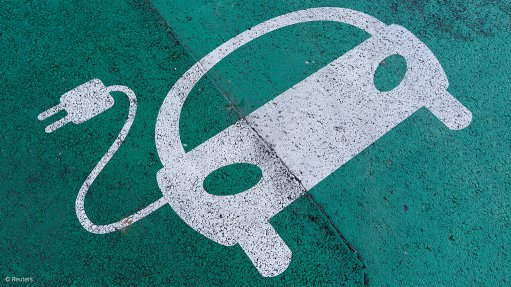
Photo by: Reuters
VANCOUVER (miningweekly.com) – Auto manufacturers are ramping up strategies to cash in on the accelerating worldwide acceptance and demand for electric vehicles (EVs), prompting advice from research and consultancy group Wood Mackenzie for automakers to ‘get out their chequebooks’ and take stakes in mines or new mine projects to lock-in future supply.
WoodMac issued a statement on Tuesday, following news that Ford will boost its investment in EVs to $11-billion between 2015 and 2022 – a sharply higher figure than a previously announced target of $4.5-billion by 2020.
Ford also revealed plans to expand its electrified portfolio to include 40 electrified vehicles globally, including 16 full-battery EVs by 2022. It outlined plans to accelerate investment in EVs and sport utility vehicles (SUVs). Specifically, Ford reiterated that it was on track to deliver a full battery electric performance SUV that offers at least a 480 km range, for launch in 2020.
According to WoodMac director for metals markets Gavin Montgomery, Ford plans to utilise lithium/nickel/manganese/cobalt oxide (NMC) batteries in their vehicles, thrusting the spotlight on securing tight upstream supplies.
“A challenge will be securing supply of the key raw materials to produce these, namely lithium, nickel and cobalt. Increasingly, we are seeing automotive companies starting to negotiate for supply of these materials directly with the mining companies.
“It may be the case that some automotive companies get out their chequebooks and take a stake in mines or new mine projects in order to lock-in future supply,” he commented.
Toyota announced on Tuesday that it had signed a strategic A$292-million share subscription agreement with ASX- and TSX-listed Orocobre to become a 15% shareholder.
The automaker’s trading arm Toyota Tsusho has been a long-term partner in the development of the Olaroz lithium facility, in Argentina, a lithium brine project, which was brought into production in 2014. Toyota Tsusho, being the exclusive sales agent for the project, has established a worldwide sales network for lithium from Olaroz since the first production.
The partners announced that they would now work to more than double the production capacity of the Argentinian operation. The JV partners are also finalising plans to jointly develop a 10 000 t/y lithium hydroxide plant in Fukushima, Japan, with expected operating costs of $1 500/t, down from previous estimates of $2 500/t.
The emergence of western EV auto manufacturers is a comparatively new trend that will influence the supply chain. The question is whether more automakers will follow China-based Great Wall Motors’ (GMW’s) investment in Pilbara Minerals and invest cash into the upstream mining and processing space.
GWM became the first automaker to directly invest $71.4-million in upstream lithium supplies, when it announced in September that it would take a 3.5% stake in Australian lithium miner Pilbara Minerals, helping the automaker secure upstream supply of the battery-making ingredient.
Electric vehicle maker and energy storage solutions provider Tesla Motors has signed at least two provisional lithium hydroxide offtake agreements with lithium project developers. Partners TSX-V-listed Bacanora Minerals and LSE-listed Rare Earth Minerals (REM) late in August 2015 became the first companies to finalise a conditional long-term lithium hydroxide supply agreement with Tesla, a deal that would see the partners develop the Sonora lithium project, in Mexico – a mineral-rich, lithium-bearing clay deposit – into a planned low-cost, sustainable and environmentally conscious mining operation.
In September 2015, TSX-V-listed Pure Energy Minerals, which is developing the Clayton Valley lithium brine project, in Nevada, also signed a similar agreement with Tesla, providing that it too would potentially supply Tesla's Gigafactory with lithium in the future.